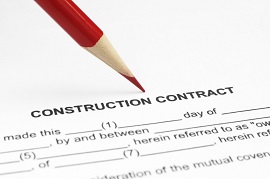Clause
A clause is a specific provision included in a formal document such as a contract, policy, regulation and so on. It is usually in the form of a section, phrase, segment or paragraph that deals with a specific issue. Clauses may be numbered for easy reference.
A clause in a contract typically addresses a particular aspect of the agreement between the parties to the contract. Standard contractual clauses are available that have been prepared to ensure consistency of meaning and interpretation, to reduce the amount of time required to draft a contract, and to build on prior experience such as case law.
Standard Form Contracts (SFC) are also available in which the complex interaction between clauses has been broadly resolved and the meaning and allocation of risk is widely accepted across the industry. For more information see: Standard form of contract.
Modifying clauses in Standard Form Contracts is generally not recommended. Lloyd QC in Royal Brompton Hospital National Health Trust v Hammond and Others said'; “A standard form is supposed to be just that. It loses its value if those using it or, at tender stage those intending to use it, have to look outside it for deviations from the standard.” For more information see: Modifying clauses in standard forms of construction contracts.
For more information about the clauses typically found in construction contracts see: Construction contract conditions.
[edit] Related articles on Designing Buildings
- Agreement.
- Collateral warranty.
- Construction contract.
- Construction contract conditions.
- Contract administrator.
- Contract negotiations.
- Document.
- Essentials of a contract.
- Implied terms.
- Modifying clauses in standard forms of contract.
- Professional indemnity insurance clause in conditions of engagement.
- Standard form of contract.
- The Chancery Lane Project.
- Z clauses.
Featured articles and news
The history of building regulations
A story of belated action in response to crisis.
Moisture, fire safety and emerging trends in living walls
How wet is your wall?
Current policy explained and newly published consultation by the UK and Welsh Governments.
British architecture 1919–39. Book review.
Conservation of listed prefabs in Moseley.
Energy industry calls for urgent reform.
Heritage staff wellbeing at work survey.
A five minute introduction.
50th Golden anniversary ECA Edmundson apprentice award
Showcasing the very best electrotechnical and engineering services for half a century.
Welsh government consults on HRBs and reg changes
Seeking feedback on a new regulatory regime and a broad range of issues.
CIOB Client Guide (2nd edition) March 2025
Free download covering statutory dutyholder roles under the Building Safety Act and much more.
AI and automation in 3D modelling and spatial design
Can almost half of design development tasks be automated?
Minister quizzed, as responsibility transfers to MHCLG and BSR publishes new building control guidance.
UK environmental regulations reform 2025
Amid wider new approaches to ensure regulators and regulation support growth.
The maintenance challenge of tenements.
BSRIA Statutory Compliance Inspection Checklist
BG80/2025 now significantly updated to include requirements related to important changes in legislation.























